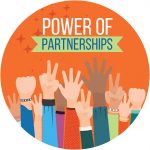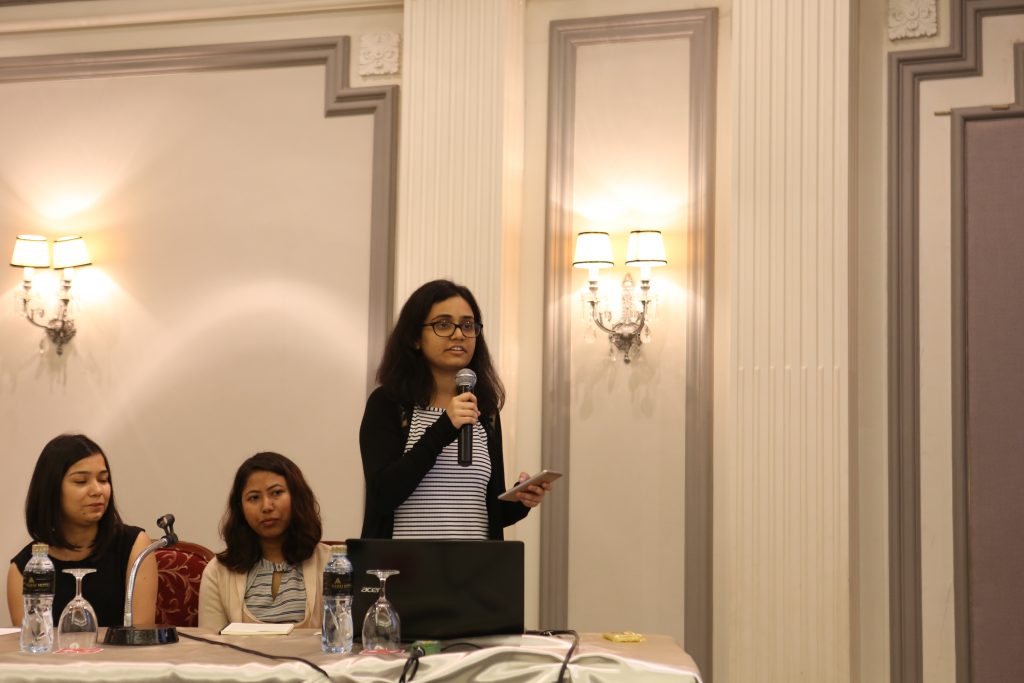Doctors: Agents of Change!
This blog is part of a series that catalogues the learnings and the reflections from the recently conducted 10th Anniversary Conference titled the ‘Power of Partnerships’.

Riti Sanghvi, Youth Champion, India
It is a universally acknowledged truth that medical students have to go through an incredible no. of pages in their undergraduate years. Despite this, we often fail to learn about socio-political-cultural practices and patriarchal systems and their effects on sexual and reproductive health.
In a country like India, where topics of contraception, sexuality and even menstruation have been heavily stigmatized, it seems like forever before we even discuss abortion, making abortion look illegal. And even though our country has quite a liberal abortion law, it lacks clarity and is not a rights-based document. It requires doctors to exercise their judgment and this is where doctors can often impose unnecessary restrictions. This limits access to abortion despite a law which was seen as very progressive when it was passed in 1971.
Thus, it is time that we address the potential of doctors as agents of change and start conversations around safe abortion as a human right, and not just a medical procedure and a public health issue.
This is where ISAY comes into the picture. ISAY was founded by a group of medical students from Mumbai, who are passionate about leading the work of safe abortion advocacy amongst fellow students after attending the YAI organized by ASAP. We at ISAY propose to sensitize key stakeholders i.e. mainly medical students and other healthcare workers involved.

Becoming a doctor is a long and often difficult process where knowledge and attitudes are shaped not just by textbooks, but by teachers and seniors. We spend up to 10 years in college without ever hearing the words misogyny or patriarchy, though its reflections are obvious in almost every textbook and teaching. These are the aspects of abortion and other reproductive health problems which our textbooks and teachers fail to address. We would like to create a future where doctors are sensitive, aware, and empowered to bring about change in health and well-being of a person as a whole. This is only possible if we start right from when they are medical students.
Textbooks and healthcare training should sensitize medical students on patriarchy, and its impact on decision making power for women regarding sex and contraception, its relation to interpersonal violence , unwanted pregnancies and the constraints that women, especially poor, young, unmarried from rural areas face in seeking access to abortion, which very commonly lead to unsafe abortion practices, hence leading to complications.
I have also been working on the analysis of the current level of gender sensitivity in the textbooks being used for undergraduate medical training and the potential impact that it has on developing attitudes.
Here is an example of the language in the textbooks which reflects not only facts but the attitude or even prejudices of the authors, thus creating a bias in the minds of students who have never been exposed to the other perspectives related to the issue in discussion.
 We have been trying to overcome these issues by carrying out sensitization workshops and YAIs for medical students across 5 medical colleges from Mumbai and beyond, building awareness among them on topics of gender, power, patriarchy, sexuality and building a rights-based perspective for abortion issues.
We have been trying to overcome these issues by carrying out sensitization workshops and YAIs for medical students across 5 medical colleges from Mumbai and beyond, building awareness among them on topics of gender, power, patriarchy, sexuality and building a rights-based perspective for abortion issues.
Our very first Youth Champion, Mubasshir Babar, organized the first sensitization workshop in Mumbai along with ASAP and the Medical Students’ Association of India, in May 2016 and till date we have conducted 4 such workshops and 4 YAIs reaching out to a total of close to 200 students. We have all been conducting sessions as peer trainers with the support of the trainers from ASAP and most of us have also had an opportunity to attend the Youth Advocacy Refresher Institute where we were able to engage in on depth with issues such as ethics, sexuality, neoliberals economic policies, law and using theatre as a tool for resistance.
We also hope to have more participation from students of various colleges across Maharashtra, but most medical students find it difficult to make time for such workshops, and therefore it is crucial that eventually, this becomes a part of our medical curriculum. And even though we have only worked with students as for now, we hope to reach out to our faculty members and encourage them to have a healthy discussion with the medical and nursing students and staffs, explaining to them the urgency of this.
We are very much determined to work on safe abortion issues as well as continue involving more healthcare workers through these workshops and collaborate with other organizations working for a similar cause.
This is only the beginning, a bigger change is due. Not only medical students, but many young people outside of the medical field are also strongly committed to gender and rights issues and we would work to include them and create a diverse network/ group of young individuals working to improve access to safe abortion for women and girls in India.
Safe Abortion is every woman’s right and we should provide it regardless of our religious belief and political stand. And even though we are all not going to Obstetricians, gynecologists or direct abortion providers, the way we talk about abortion in our community is going to influence decision and policy-making, and even direct provision of it. It’s time we understand that abortion is a human right and we as doctors don’t get to make decisions about anyone’s body.
Because…
IT’S HER BODY, HER CHOICE, HER RIGHT!






